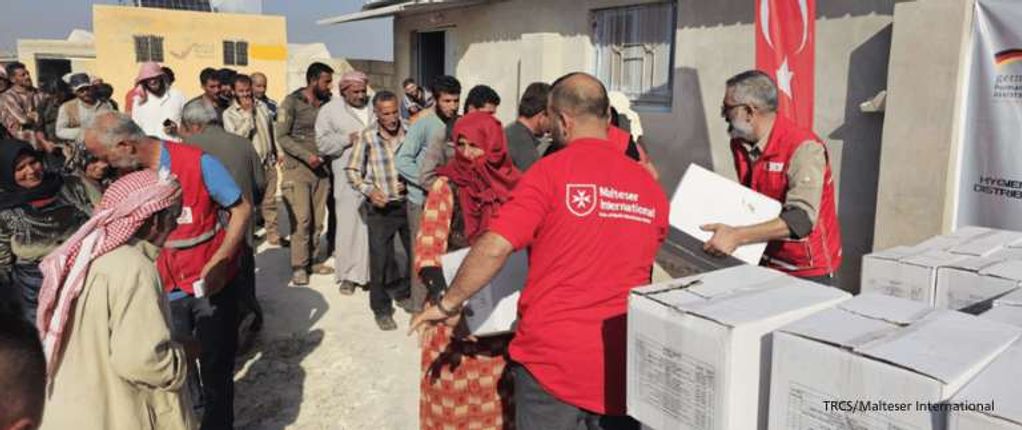
Improving access to water, sanitation and hygiene (WASH) in Syria
People in Syria are facing a major water crisis due to a lack of safe drinking water. Damages to infrastructure affects how water systems function and deliver water to homes. As a result, more than half of the population relies on unsafe water sources such as contaminated wells.
Water, sanitation, and hygiene (WASH) are linked in many ways. Poor hygiene, inadequate access to clean drinking water, and lack of sanitation facilities cause people to die from preventable diseases each year, with children being particularly affected.
Since the severe earthquake in February 2023, WASH support is still needed, e.g. through the desludging of septic tanks, the construction, repair and rehabilitation of latrines, the transportation of water, the rehabilitation of water and sanitation networks and the distribution of hygiene kits. 660 camps (44% of 1,500 camps) in northwest Syria currently lack access and support in the WASH sector, affecting a total of over 907,000 people.
In close cooperation with local partner organizations, we are working to ensure that the right to water and sanitation can be exercised by all people.
For two consecutive years, a prolonged drought and the low water level of the Euphrates River have plunged Syria into a severe water crisis. This affects both the quantity and quality of water and leads to overuse of limited groundwater. Alongside poor sanitation and hygiene practices, the decline in water quality leads to a direct increase in health risks. Waterborne diseases, particularly AWD/cholera, are on the rise, affecting the well-being and protection of households. For these reasons, we will continue to do our part to distribute hygiene kits and treat those affected in our clinics as soon as symptoms appear.
To make matters worse, large quantities of wastewater are being discharged untreated into the sea and many sewage systems are not functioning properly.
This poses an immediate threat to water sources, making them undrinkable and leading to the contamination of water bodies, which has serious consequences for the health of the population and the environment.
The water crisis in Syria, fueled by environmental factors and inadequate infrastructure, is a multi-faceted challenge. It is crucial to address not just the scarcity of water but also the declining quality, along with the associated health risks in order to ensure the well-being of the affected population.
We aim to reduce the risk of communicable diseases, improve hygiene practices, and increase the resilience of internally displaced people by providing dignified access to essential WASH services.
- Provide clean water to displaced people.
- Distribute hygiene kits to families.
- Provide maintenance and repair of sanitary facilities.
- Solid waste management.
- Construction and repair of public latrines in camps.
- Repair and rehabilitation of the water networks, sewerage infrastructure and water tanks.
- Septic tank cleaning.
- Water trucking.
Country info
Capital: Damascus
Area: 185,180 km²
Population: approx. 23.23 million
Project data
Financing: German Federal Foreign Office (GFFO), Germany's Relief Coalition (ADH)
Partner: Bahar, Hand in Hand for Aid and Development (HiHFAD)
Duration: July 2024 - June 2025








